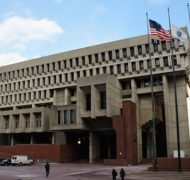The Economic Consequences of National Wrongdoings (Psalm 81, 85)
Bible Commentary / Produced by TOW Project
Despite the attention to personal judgment we have seen in Psalm 73, in most of Book 3, it is the nation of Israel that comes under judgment. The topic of national judgment, per se, is relevant to this article to the extent that it establishes the context for people carrying out their work in that nation. It also suggests an important type of work the Christians can engage in while representing the Kingdom of God, namely national policy making. But we can note that when a national government becomes evil, the country’s economy suffers. Psalm 81 is an example, for it begins with God’s judgment against the nation of Israel. “But my people did not listen to my voice; Israel would not submit to me. So I gave them over to their stubborn hearts” (Ps. 81:11-12). Then it goes on to describe the economic consequences. “O that my people would listen to me... I would feed you with the finest of the wheat, and with honey from the rock I would satisfy you” (Ps. 81:13, 16). Here, we see how national violations of God’s covenant bring about scarcity and economic hardship. Had the people been faithful to God’s ways, they would have experienced prosperity. Instead they have abandoned God’s ways and find themselves going hungry (Ps. 81:10).
Likewise, Psalm 85 describes the economic benefits that accrue when Israel is faithful to God’s commands. The people experience peace and security, productive work, and increased prosperity (Ps. 85:10-13). Without good government, none of us can hope to prosper for long. In many places Christians are highly visible in opposing government policies we disagree with, but constructive engagement is needed too. What can you do to help establish or preserve good government in your town, region or nation?





